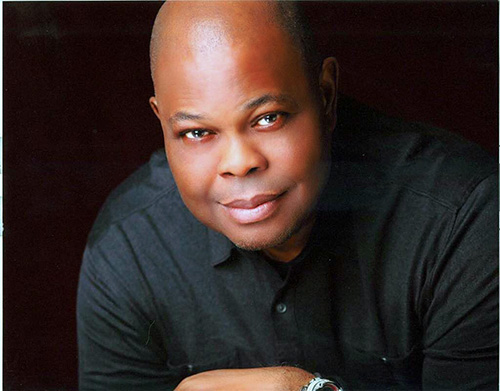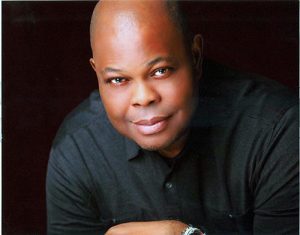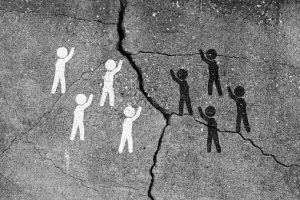Only recently, I have began to write short notes on topical issues in line with the new conventional rule of most writing – the shorter, the better. I try to give variances and more contest in the stories in my notes by ensuring that the structure and pattern of whatever I write about reaches my readers on a deep level about the experiences that shape their beliefs, as we all try to make sense of our tumultuous and complicated world.
The dictum that every opinion starts with a story, holds strong, and spurs me, to every now and then, pick up and write about a story, no matter how inconsequential it may be to our circumstances. Whether I write about war, love, art, politics or the economy, there is always a story to tell, and there is always an interconnection to our day-to-day happenings. For these reasons, I will always find time to write, even when it appears that the reading audience has waned or disappeared.
After becoming a voracious and an inquisitive reader, there came a point in my life that I became an appalling and an inattentive reader. This happened right after Graduate School in the pursuit of a Doctorate degree, a process that required and compelled me to read quite a large volume of books in quick and rapid manners. This routine of reading at that point, became rather ritualistically assiduous. It became laboriously scrupulous, but essentially compulsory.
After Graduate school, I began to suffer from some form of diminishing returns, spending very little time to read, often reading soft cell materials that demanded very little attention, and didn’t demand to be finished or retained for any meaningful content or reason. As a consequence, books and other useful materials began to pile-up, collecting dust on my bookshelves, my mantles or wherever I found useful storage space. At that point, I am a bit embarrassed to admit that I considered the towers of books that I do purchase and stock to be some form of the height of sophisticated décor that complimented our homes and offices.
Today, when I think of the many outstanding books and materials in my fields and in many other areas that I have not read, I begin to see my life as a complete embarrassment, as a waste of value and essence. My consolation, however, is that my wife who belongs to a very active book club is constantly reading a book. For this, I feel a certain closeness to books and feel some form of a proxy and affinity to reading.
Being the son of a writer, an editor of various newspapers in the 1940s through to the 1950s, growing up, I naturally imbibed some form of closeness to books and to the literary world. My father tried his best to inculcate the reading culture in me and in his other children. But I would rather be out playing football, than sit over some boring piece of literature or some fairy tales about politics and affairs of the world.
Now, it has become my turn as a father to get my children to read. This has been an arduous task. Every Sunday, I make it a ritual to drag everyone in my household to the Barnes and Noble Bookstore, where I practically force them each to pick six books of their choice. This has been going on for years, but I am afraid to report that these children are more interested in playing computer and phone games than in reading books.
In my eyes, the myth that children, especially blacks, do not read, began to look increasingly sustainable. However, the turning point may be the surge and rapid emergence of popular Black writers like Chinua Achebe, Toni Marrison, Alice Walker, Wole Soyinka, Terry McMillan and a few others, who may have began to build a strong and reliable followership, and a fan base in our own communities. However, the racist backlash from the mostly white publishing houses against black writers and against stories about the black race has become very damaging, and has eviscerated the production and publication of books that recognize and portray the stories, the histories and experiences of nonwhites.
Black histories and the books about them are essential parts of our literary world. A few that escaped white “censorship” have become best sellers. Just consider the story of Alex Haley’s “Roots”, a historical novel that Doubleday after some reluctance, published in1976, and the huge success it attracted.
The experience for white writers who write about black stories is no difference from what their black counterparts suffer in the hands of the white publishers. How do we expect reading to help us start new chapters in our lives, when we are systemically not allowed to tell and read of our own stories?
The isolation and the quarantine that came with the pandemic turned many of us to the old-fashioned book reading habits and practices. With the pandemic, we learned to be together while apart and while navigating the pain and agony of being apart and by ourselves, we had ample time to read. When our gatherings and being out-and-about became fraught with dire dangers and consequences, we were forced to stay home and in shelters, suffering the suffocation of being in reach others ways. This period, however, offered us the opportunities to rediscover the joy of reading, and for some, that of writing.
During the height of the pandemic period, statistics showed that all over the world, the number of print books, for the first time in 20 years, rose astronomically in two consecutive years. Worldwide records showed that Penguin Random House’s revenue rose by $190 million in 2020 and by another $270million in 2021. This was obvious evidence of a significant jump in reading during this period. However, it is difficult to speculate that this occurrence will be sustained. My prediction is that we may well soon return to the era when reading slipped decades ago. This prediction is based on my perception that the plunge in book reading will be as a result of it loosing its market share to other media.
For generations, we have witnessed an erosion of our appetite for reading. This decline has become progressively constant in ways that should worry us, and disturb our sense of the fundamentals and foundations of knowledge and learning. How can we learn if we do not read? How can we address the mistakes of the past if we are unable to read and learn about them?
To address the new chapters in our lives, our communities and in the world, we must begin to read again. During my Secondary School days, two hours per day were compulsorily spent in our school library. This was my initial introduction to Time and Newsweek magazines. I doubt if our schools have functional libraries today. A few years ago, I took the liberty of walking into the government-owned Kenneth Dike public library in my hometown, Awka, and it was a shameful experience, There were no books or journals and the environment was less than conducive to encourage any useful comments.
I have an apodictic sense that reading will rekindle the phapsodic thrill of our intellect, and that it will create a daring repair of the disconnect between us and our past and our future. It is therefore on the account of these reasons, and many others, that I have stated in this short note, that I make bold to call for us to return to reading, to encourage our children to read more than they stay on their phones and computers. We must all come together to encourage reading and to promote its practices. We must set up programmes like a National Book Award, Book Festivals, build and equip libraries in both rural and urban areas across the country. There is so much work to do to uplift our societies, and reading is just an important and integral part.
Dr. Okey Anueyiagu



